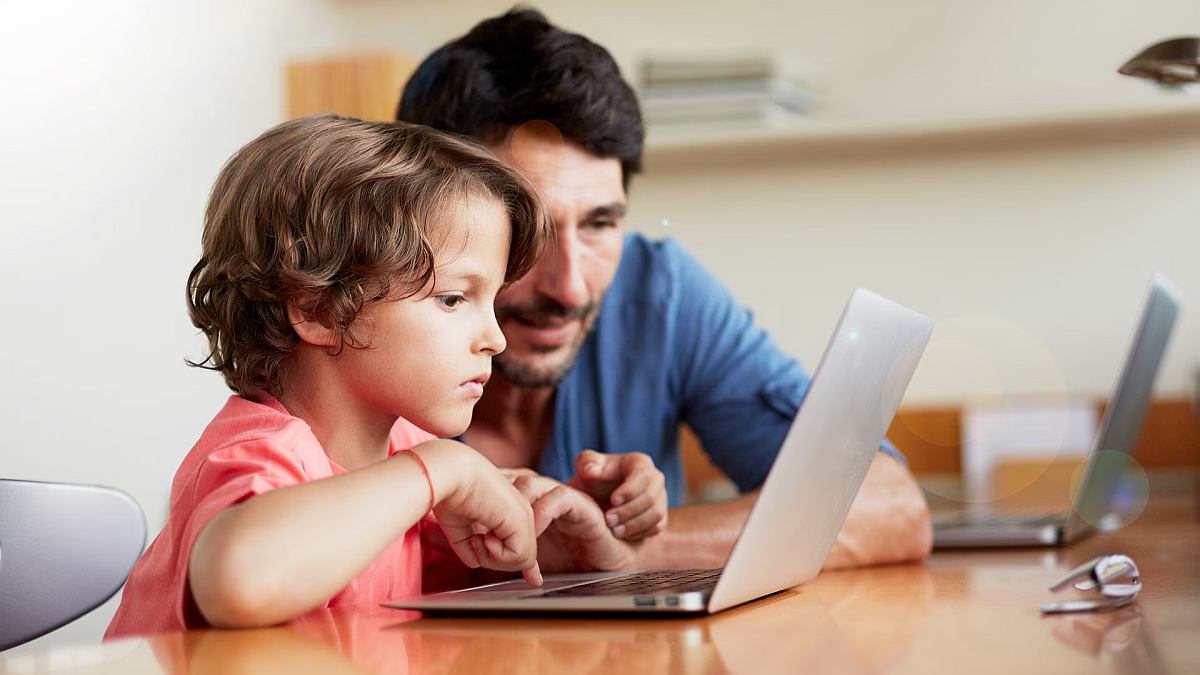Online dangers continue to grow, and this is a concern that does not leave out anyone. Given the current dynamics, children and adolescents are extremely exposed to cyber risks.
Now that the back to classes, Giving our children and the minors of our environment The gift of their security in the digital world is priceless.
The first and main thing is to show them that we care about their safety in Internet. It is suggested to talk to them about what they do online, both at home and at school. What topics are interested in? What apps do they use, both for school and to have fun, do favorite influencers have? It is crucial to periodically check what happens to them in the online environment, as we do in their lives in general.
Being connected can be fantastic, but it is crucial for our children to know that there are not so funny things to which we must pay attention. Talking daily of these issues makes them seen as normal, and it is easier for them to come to us in any problem they may have.
The talk about “the danger of interacting with strangers” acquires a completely new meaning in the scope of cyberbarists. You may be surprised at what children and adolescents can tell about what they know about the following topics:
- Friends online: If we only know him virtually, it may not be who claims to be.
- Share too: What we publish online can be visible to all, even with enabled privacy settings, and will probably stay there forever. What would we share with a stranger in the street?
- Cyber bullying: Encourage our children to tell them if someone is bad with them or other people online, since they reflect before posting or commenting on the Internet.
- Cybersecurity risks: If we are not careful of the sites we visit, the links we click and the passwords we create, criminals can access our data and systems. A good idea to raise awareness among children about safe passwords, Phishing and how a fingerprint is left is to take advantage of stories that already know, such as children’s stories, as suggests Singapore cybersecurity agency[1]. For older children, you can expose about Chatgpt, which promises a lot, but usually does not comply: it provides inaccurate information, potentially collects and uses our data incorrectly, etc.).
2) Sort the configuration
Having adequate parental configuration of privacy and security can help prevent situations before they occur and give peace of mind while providing their children with certain sense of online freedom.
If your child has a new device or downloaded a new app, it is a great opportunity to order the configurations and talk to him on the subject.
For each gadget or app that children and adolescents use around them, consider the following:
- Parental controls: Consider the content suitability filters, discharge approvals or disposal of applications, purchase permits and time limits on screen. See this guide to limit youtube content[2]For example.
- Privacy settings: Go beyond the default configuration when it comes to privacy. Check who can see what your child does and who can contact him.
- Security settings: Make sure children and young people use safe, long and unique passwords, and take advantage of multifactor authentication whenever possible. In addition, you have to periodically update devices and applications, and consider installing antivirus. Any protection that can implement and does not require that the child has to do something, will make it easier to keep the safe gadgets.
3) Give a good example
As tips to make security a priority at home, we can mention the following:
- Practice good basic security principles, such as protecting the domestic network and using safe passwords.
- Configure a load station that requires all devices to be out of the rooms at night. This gives everyone a break from the online world.
- Stay informed about cybernetic, including new apps and what they do.
Consider your own presence on the Internet: How long does it spend online? Could you replace the time that scrolls it on social networks with something more fun as a family? If you set the parental controls to your own smartphone, it helps to limit the time in front of the screen.
And finally, be aware if you always stop to think before publishing something online. Remember that everything you publish will be potentially there in view of everyone, always.
If you are going to upload photos of your children to social networks, think that this will involve them forever; Brind them the same consideration that would give yourself.
Veeam ciso.
Source: Ambito
David William is a talented author who has made a name for himself in the world of writing. He is a professional author who writes on a wide range of topics, from general interest to opinion news. David is currently working as a writer at 24 hours worlds where he brings his unique perspective and in-depth research to his articles, making them both informative and engaging.




